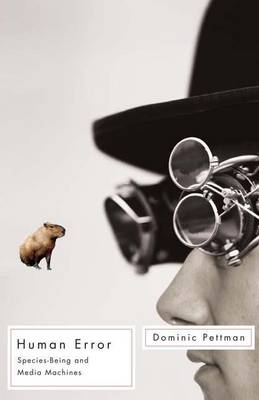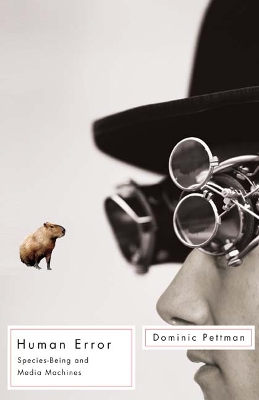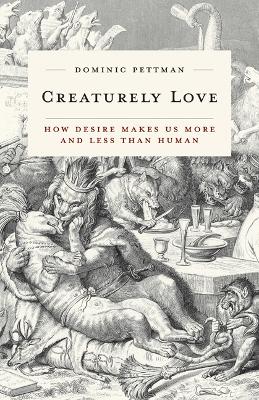Posthumanities
1 primary work • 3 total works
Book 14
In Human Error, Pettman describes the three sides of the cybernetic triangle—human, animal, and machine—as a rubric for understanding key figures, texts, and sites where our species-being is either reinforced or challenged by our relationship to our own narcissistic technologies. Consequently, species-being has become a matter of specious-being, in which the idea of humanity is not only a case of mistaken identity but indeed the mistake of identity.
Human Error boldly insists on the necessity of relinquishing our anthropomorphism but also on the extreme difficulty of doing so, given how deeply this attitude is bound with all our other most cherished beliefs about forms of life.
To our modern ears the word “creature” has wild, musky, even monstrous, connotations. And yet the terms “creaturely” and “love,” taken together, have traditionally been associated with theological debates around the enigmatic affection between God and His key creation, Man. In Creaturely Love, Dominic Pettman explores the ways in which desire makes us both more, and less, human.
In an eminently approachable work of wide cultural reach and meticulous scholarship, Pettman undertakes an unprecedented examination of how animals shape the understanding and expression of love between people. Focusing on key figures in modern philosophy, art, and literature (Nietzsche, Salomé, Rilke, Balthus, Musil, Proust), premodern texts and fairy tales (Fourier, Fournival, Ovid), and contemporary films and online phenomena (Wendy and Lucy, Her, memes), Pettman demonstrates that from pet names to spirit animals, and allegories to analogies, animals have constantly appeared in our writings and thoughts about passionate desire.
By following certain charismatic animals during their passage through the love letters of philosophers, the romances of novelists, the conceits of fables, the epiphanies of poets, the paradoxes of contemporary films, and the digital menageries of the Internet, Creaturely Love ultimately argues that in our utilization of the animal in our amorous expression, we are acknowledging that what we adore in our beloveds is not (only) their humanity, but their creatureliness.


